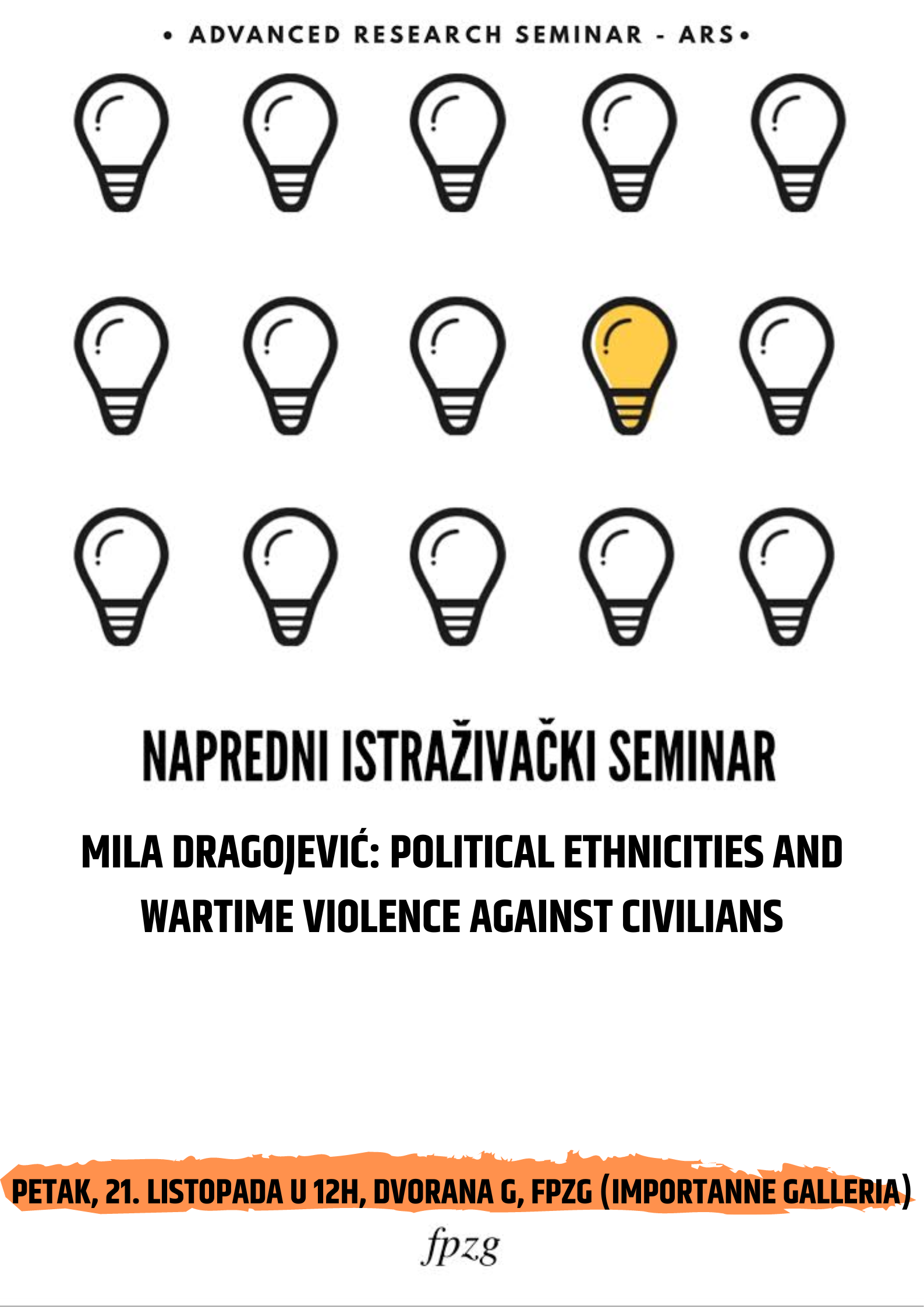Political Ethnicities and Wartime Violence Against Civilians
Mila Dragojević is Professor of Politics at the University of the South (Sewanee, Tennessee) and the 2022 Fulbright Scholar affiliated with the Faculty of Political Science at the University of Zagreb. She teaches and researches in the areas of peace and conflict, identity politics, regime transitions, and migrations in Europe and Latin America. Her research examines the processes linking political and cultural identities, as well as political action of ordinary individuals during extraordinary times when their lives are affected by forced displacement and political violence.
Her research was published in Slavic Review, Nationalities Papers, and Ethnic and Racial Studies and other journals and edited volumes. She is the author of The Politics of Social Ties: Immigrants in an Ethnic Homeland (Ashgate/Routledge 2014) and Amoral Communities: Collective Crimes in Time of War (Cornell University Press 2019). The latter book was translated into Croatian and published with Srednja Europa in 2020 under the title Identiteti u ratu: civilne žrtve u komparativnoj perspektivi. Her work was supported by the Harry Frank Guggenheim Foundation, Appalachian College Association, among a number of grants from the University of the South, including the Kennedy Fellowship, the McCrickard, the Faculty Development, and the Barclay Ward Faculty Research grants.
In her presentation entitled “Political Ethnicities and Wartime Violence Against Civilians,” Mila Dragojević will outline her findings from her research for her most recent book. She will show how conditions conducive to atrocities against civilians are created only in some communities and during particular times. The communities which she compares are in Croatia in the 1990s and in Uganda and Guatemala in the 1980s. She identifies the exclusion of moderates and the production of borders as the main processes that limit individuals’ freedom to express their views, work to prevent the possible defection of members of an in-group, and facilitate identification of individuals who are purportedly a threat. In these places, political and ethnic identities become linked and targeted violence against civilians becomes both tolerated and justified by the respective authorities as a necessary sacrifice for a greater political goal. Dragojević augments the literature on genocide and civil wars by demonstrating how violence can be used as a political strategy, and how communities, as well as individuals, remember episodes of violence against civilians.

 Pristupačnost
Pristupačnost